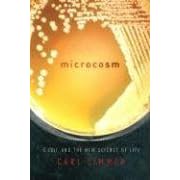I've got a few assumptions I start from:
- The universe is fundamentally stochastic (probability of events can be predicted deterministically, but not events themselves) on a small scale, but acts mostly determinisically at normal scales.
- Specifically the human brain is mostly deterministic, and the nondeterministic elements are not particularly coordinated (meaning no quantum computer in the brain, not that that would alter my conclusions much)
- The mind exists totally within the brain (I don't believe in a soul for example)
- Free Will means one thing in philosophy and another in normal language.
So, what do we mean by free will? Philosophically it can be defined in many ways (and usually the views of philosophers depend on their definitions is my impression), but they all get at the idea of making a decision independent of outside influence. This idea has some problems: for one thing, we know that outside influences can affect decisions, and not just by altering the consequences of actions either, for example people act differently under the effect of drugs than normally. My assumptions above force me to take the position that free will does not really exist in the philosophical sense.
So can we make choices in my view? Well, it all comes down to definitions. I would say that our actions are determined by both internal and external states of the universe, so a choice in the usual sense is impossible, but the sensation of choice corresponds with a state transition in the higher functioning parts of the brain. When I say "I want to do X", I mean "my memories, beliefs, values, and reasoning ability inclines me to actions that I believe will lead to X", and when I say "I chose to do X" I mean "I did X because of a variety of reasons, mainly because of my memories, beliefs, values and ability to reason, as opposed to instinct, outside chemicals or orders".
In everyday life free will means something more like the idea of actions being endogenous (coming from internal states of the brain, rather than direct outside influence). An easy way to see how this differs from philosophy would be the case of a drunk driver: they would normally know not to drive drunk, but once drunk, and knowing they are drunk, drive nonetheless with no other outside influence on them to drive other than alcohol. If you accept my premises above that the brain is the seat of all human consciousness and is (mostly) deterministic, then clearly the alcohol caused the drunk driver to drive. In an everyday sense, even if you believe that I do, most people would hold the drunk driver responsible if he hit anyone. This bring me to a good way to sum up the common sense idea of free will (at least as I see it): responsibility. People are responsible for their actions even if there are outside influences on them.
Most people view strict determinism (or even my "everything on the scale of daily life is deterministic for the most part") as morally repugnant because they feel that people are not responsible for their actions in such as worldview. This is not necessarily the case, we can hold people responsible for their actions if we like, no matter our philosophical views. I would hold everybody responsible for their actions, and then we as society can choose what actions we want to support, and which to punish.
Some argue that in a deterministic (or mostly deterministic) world there is no place for ethics. This seems like a poorly thought out objection to me, if outside influences affect people's actions than surely ethics and laws affect people's actions, in a way that we want.
Well looking over Wikipedia's Compatibilism article, it seems I'm on well treaded ground; this is not particularly surprising, but I nonetheless like my views as recorded here. I will note that my view are somewhat different from compatibilism in that I believe that we don't have free will but that are nonetheless responsible for our actions, but in the end that becomes a matter of definition and language.










